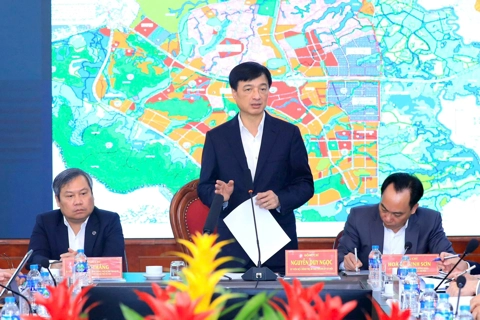Hanoi to build another urban railway line worth US$1.8 billion
The line is designed to run through districts of Hoan Kiem, Hai Ba Trung and Hoang Mai and span 8.8 kilometers, with 8.13 km going underground.
The Hanoi People’s Committee is seeking government approval for the urban railway line No.3 project, running from the Hanoi station to Hoang Mai district, worth some VND40.5 trillion (US$1.75 billion), Zing.vn reported.
| Metro line 3 from Hanoi station to Hoang Mai is the continuation of the line from Nhon to Hanoi station which is under construction. Photo: Hoang Ha/Zing |
According to Hanoi’s report, the scale and capacity of this urban railway are basically consistent with the plan and similar to the scale of the Nhon-Hanoi station urban railway which is under construction. This line, when put into operation, will join the city's interconnected urban railway network.
The line is designed to run through districts of Hoan Kiem, Hai Ba Trung and Hoang Mai and span 8.786 kilometers, with 8.13 km going underground. The area of construction is about 34.25 hectares.
Metro line No.3 will share the ticketing system with the Nhon - Hanoi station section, making the line a unified route from Nhon to Hoang Mai. The line’s ridership will be about 124,000 passengers per day in 2030 and about 295,000 by 2040.
The Hanoi People's Committee expects the project would be executed in the period of 2020-2030.
The Hanoi city government is also considering building a number of monorail lines to better the rail public transport network in the capital city.
According to the government’s report, Hanoi plans to build eight urban railway lines in the central city area with a combined route length of 305 km, including three monorail lines, in its development plan for 2030 with a vision towards 2050.
Date for official run of Hanoi's first metro line, from Cat Linh to Ha Dong, remains unknown although construction commenced in October 2011 and was originally scheduled for completion in 2013.













